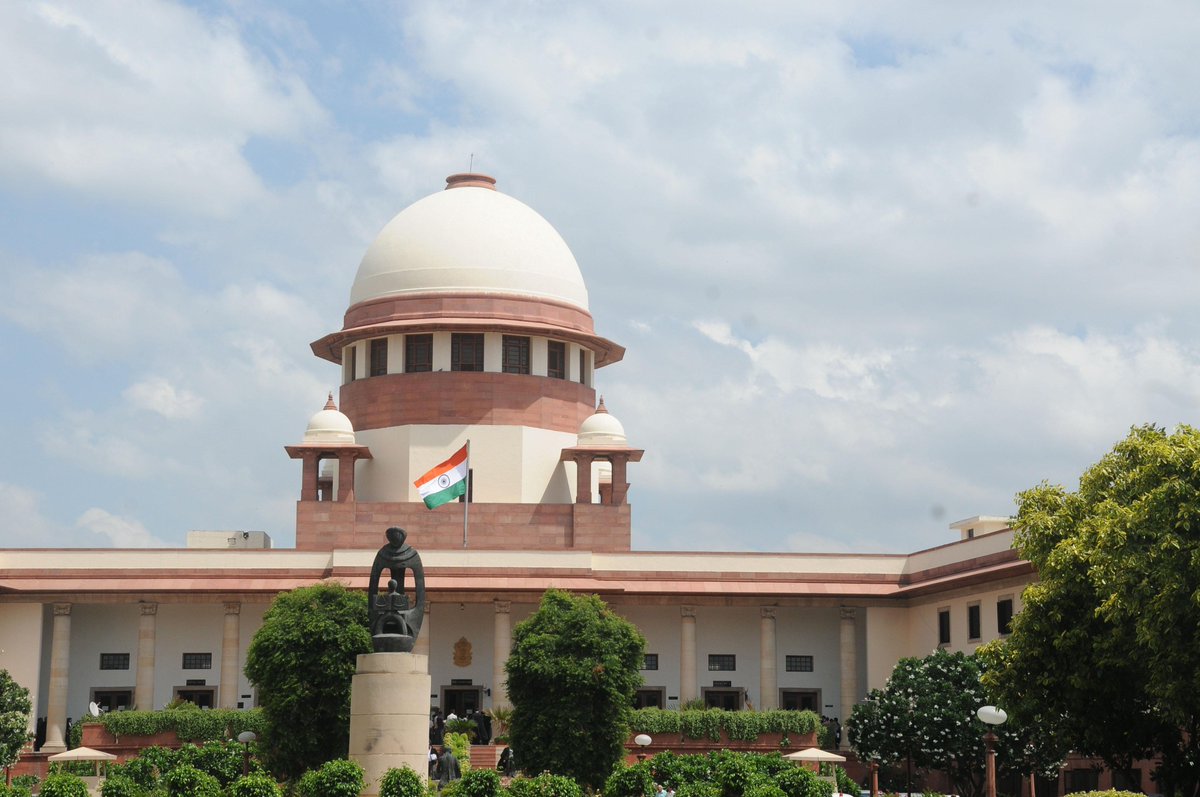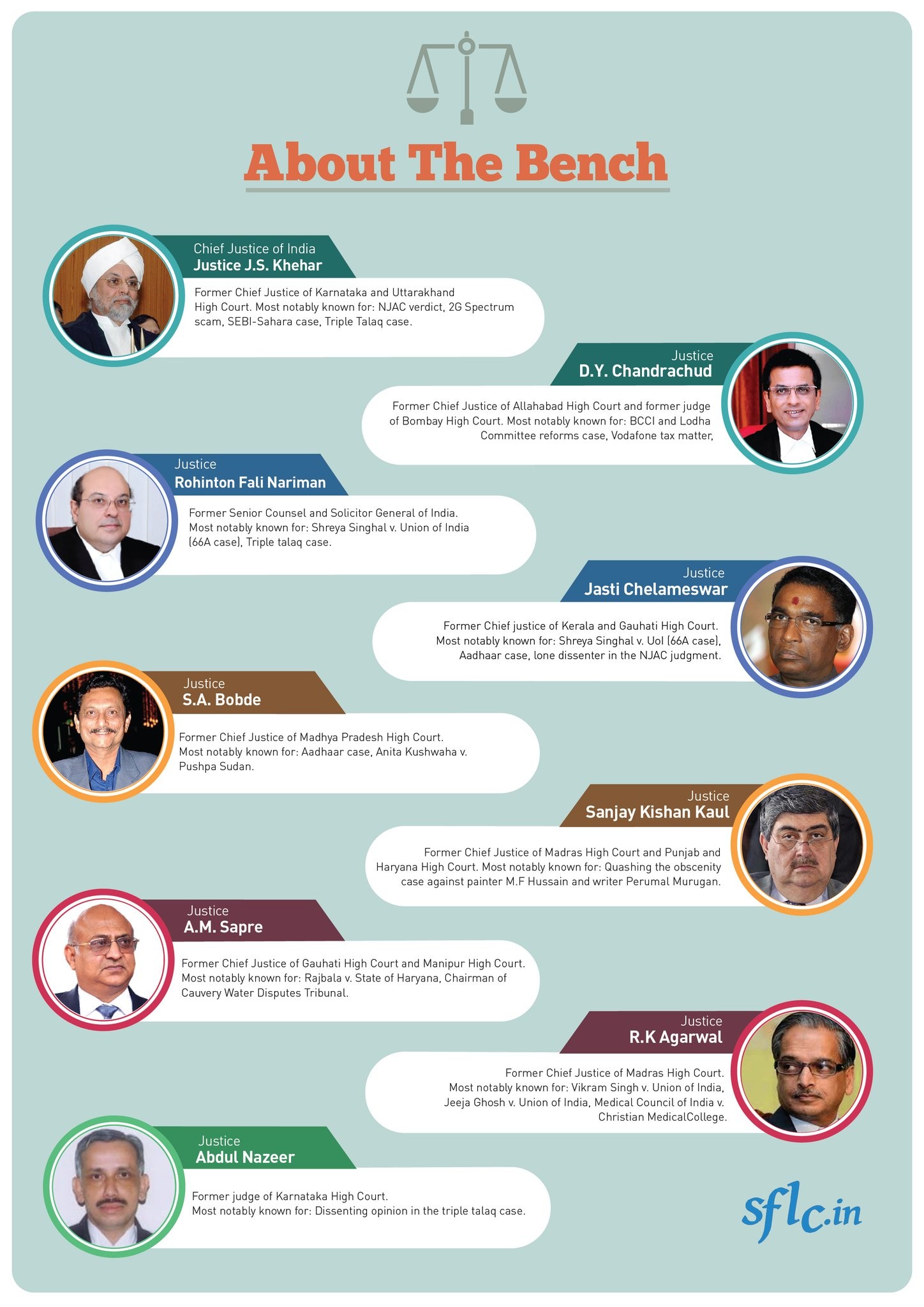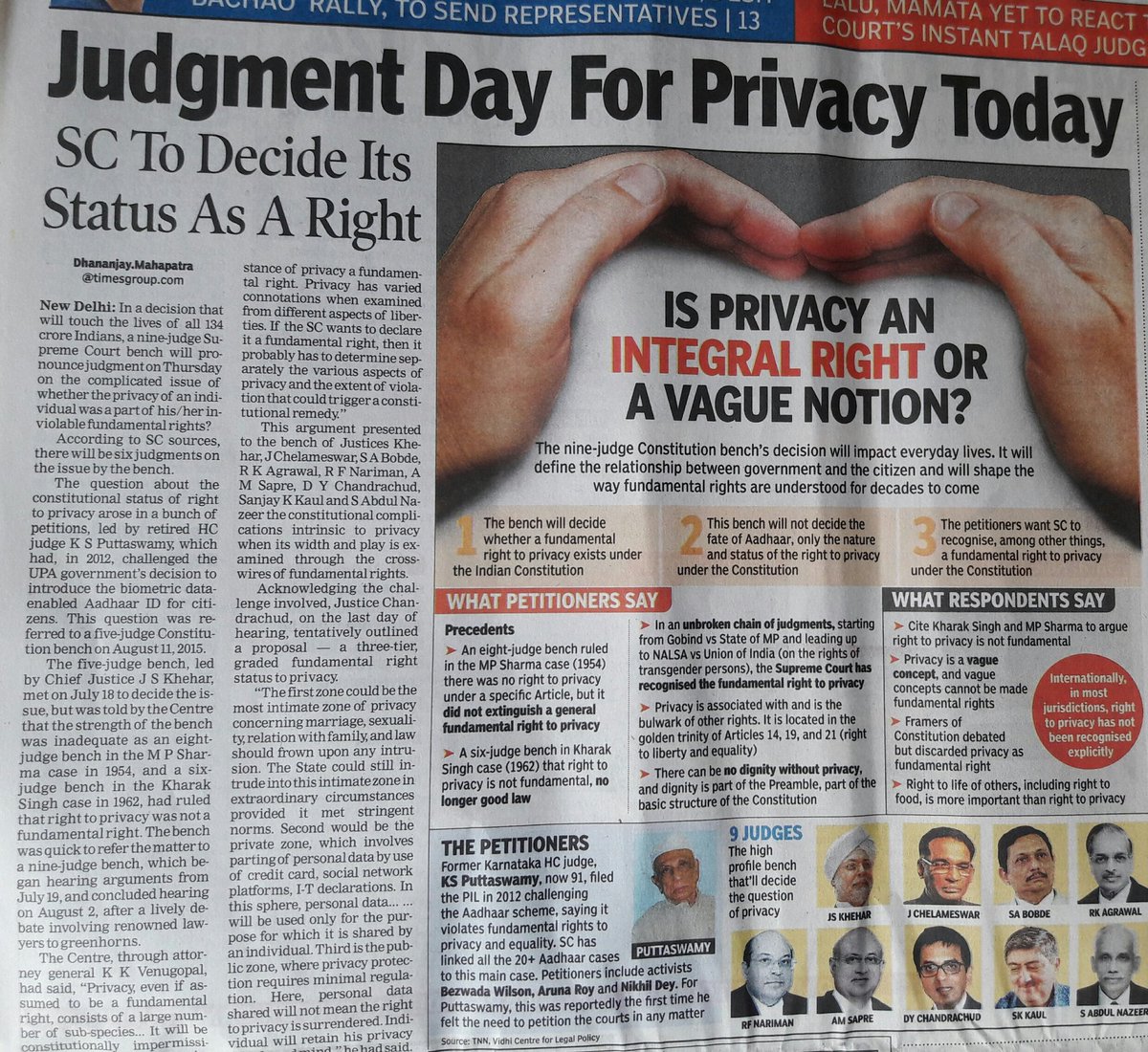

Right to Privacy – Back to back Historic ruling by Supreme Court of India
The Supreme Court on Thursday ruled “Right to Privacy” is a fundamental rights for the people of India. This is being considered as one of the landmark decision by Supreme Court of India after the latest take on Triple Talak.
A nine-judge bench of the Supreme Court, headed by Chief Justice of India J S Khehar, has unanimously declared Right to Privacy as part of Right to Life and Liberty assured by the Article 21 of the Indian constitution. SC upholds privacy as fundamental right, but hasn’t addressed Aadhaar issues.
“Privacy is intrinsic to the right to life and personal liberty under Article 21 of the Constitution and will be included under schedule III of the Constitution.”, said chief justice J.S. Khehar while pronouncing the unanimous verdict.
The right to privacy will now find place under schedule III of the Constitution along with other fundamental rights:
*right to equality before law,
*right to various freedoms such as speech and expression/to move freely,
*right against exploitation,
*right to freedom of religion,
*cultural and educational rights and
*right to constitutional remedies.
The court also overruled earlier judgments of M.P Sharma vs Satish Chandra and Kharak Singh vs State of Uttar Pradesh that had held privacy to not be a fundamental right.
The judgement has not addressed issues of Aadhaar and Section 377 and other issues peripheral to the Right to Privacy debate. It did not say anything about citizens having the right to not share their biometric details, said senior advocate and petitioner Prashant Bushan in an interaction with the media after the verdict
The Bench
The high profile bench that will decide the question of privacy. Here are the judges:
#RightToPrivacy is a fundamental right | What Judges Said https://t.co/NiEtzinXRO pic.twitter.com/Bbx6bdRiCv
— NDTV (@ndtv) August 24, 2017
- 1. JS Khehar
- 2. J Chlameswar
- 3. SA Bobde
- 4. RK Agarwal
- 5. RF Nariman
- 6. AM Sapre
- 7. DY Chandrachud
- 8. SK Kaul
- 9. S Abdul Nazeer
Know more on the Bench who has made this historic decision on Right to Privacy


Image courtesy: sflc.in
The Aadhaar Act passed in 2016 has compelled the citizens of India to register for an Aadhaar number and link it with all important details such as bank accounts, PAN Card, tax returns, mobile numbers and the like. The impact of the ruling on the Centres 12-digit unique identification project, Aadhaar will be understood only once the detailed judgment is uploaded.


Some reaction from the petitioner on Right to privacy
#RightToPrivacy | A "watershed day" for our democracy, says @rajeev_mp.https://t.co/1VIQL2Hqvr pic.twitter.com/QyBZLiJhsH
— BloombergQuint (@BloombergQuint) August 24, 2017
Watch out this space for more as to how Twitter reacted on this fundamental judgement.
Please share this piece with more people for general public awareness.
